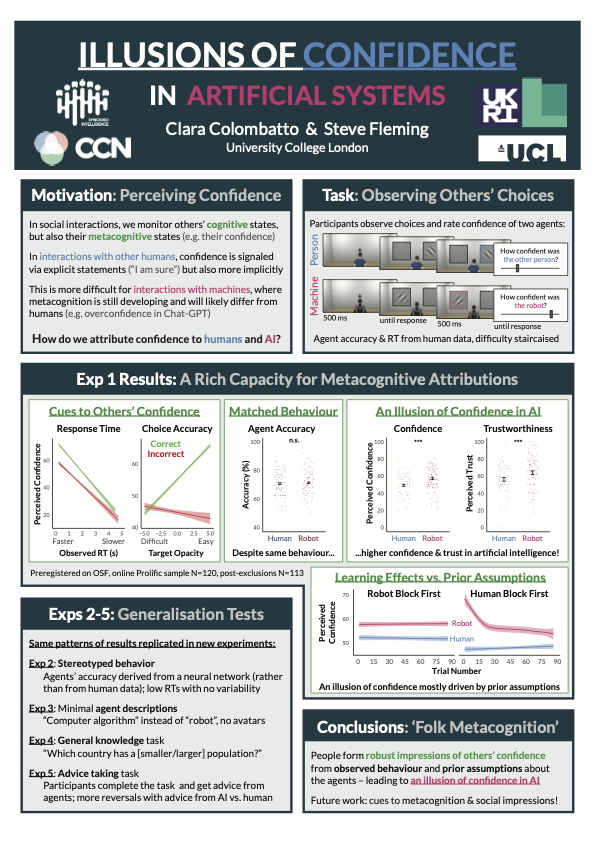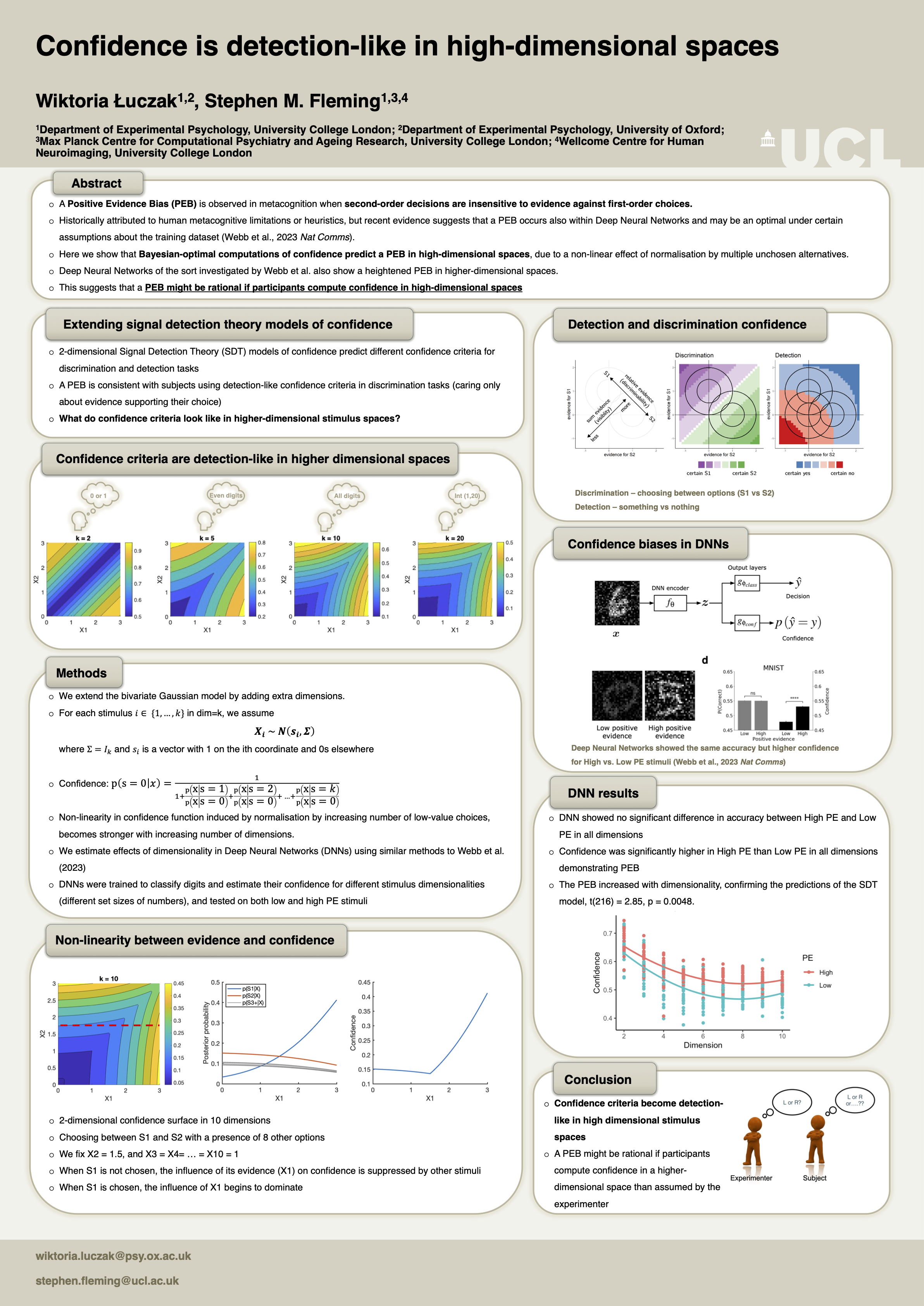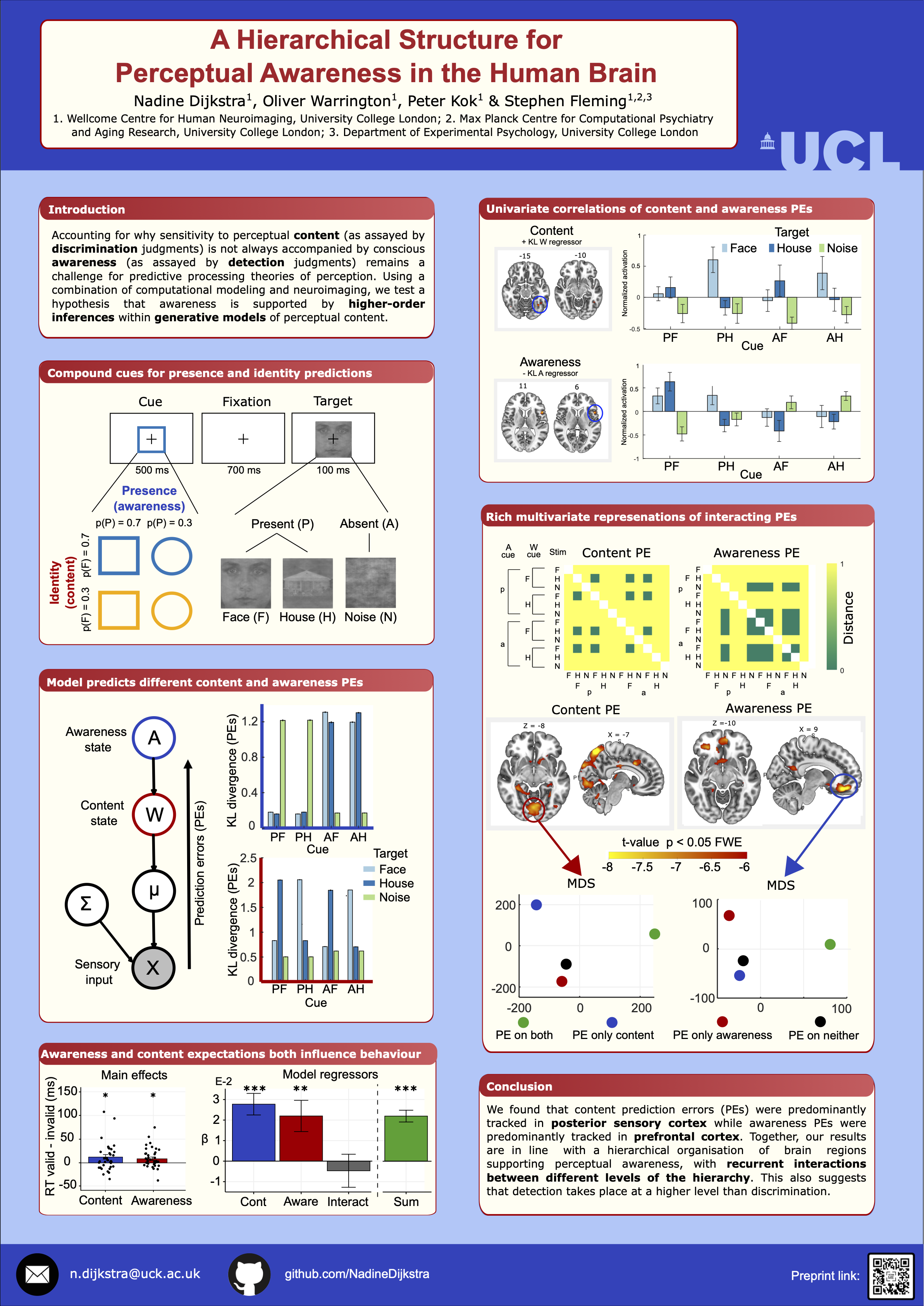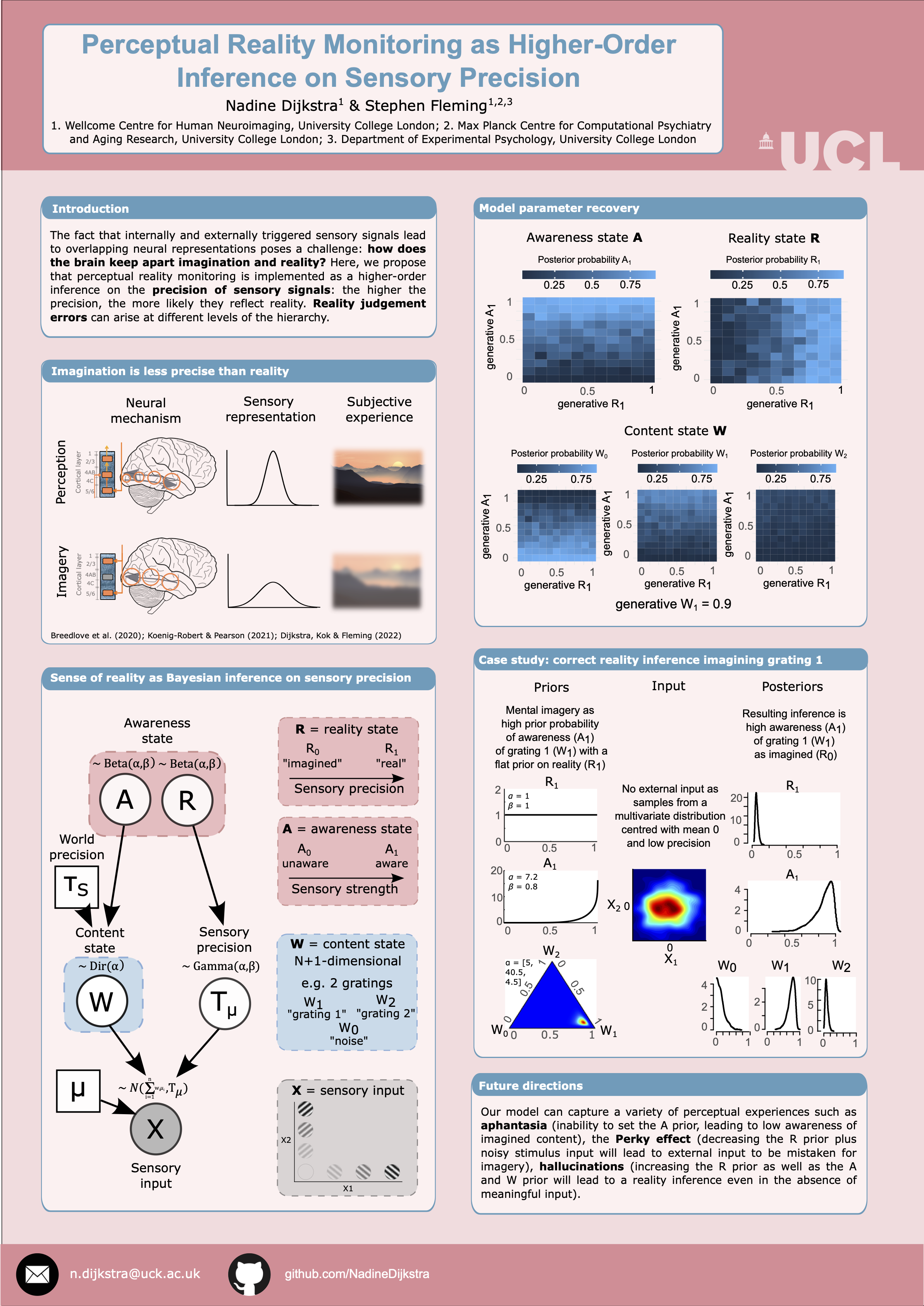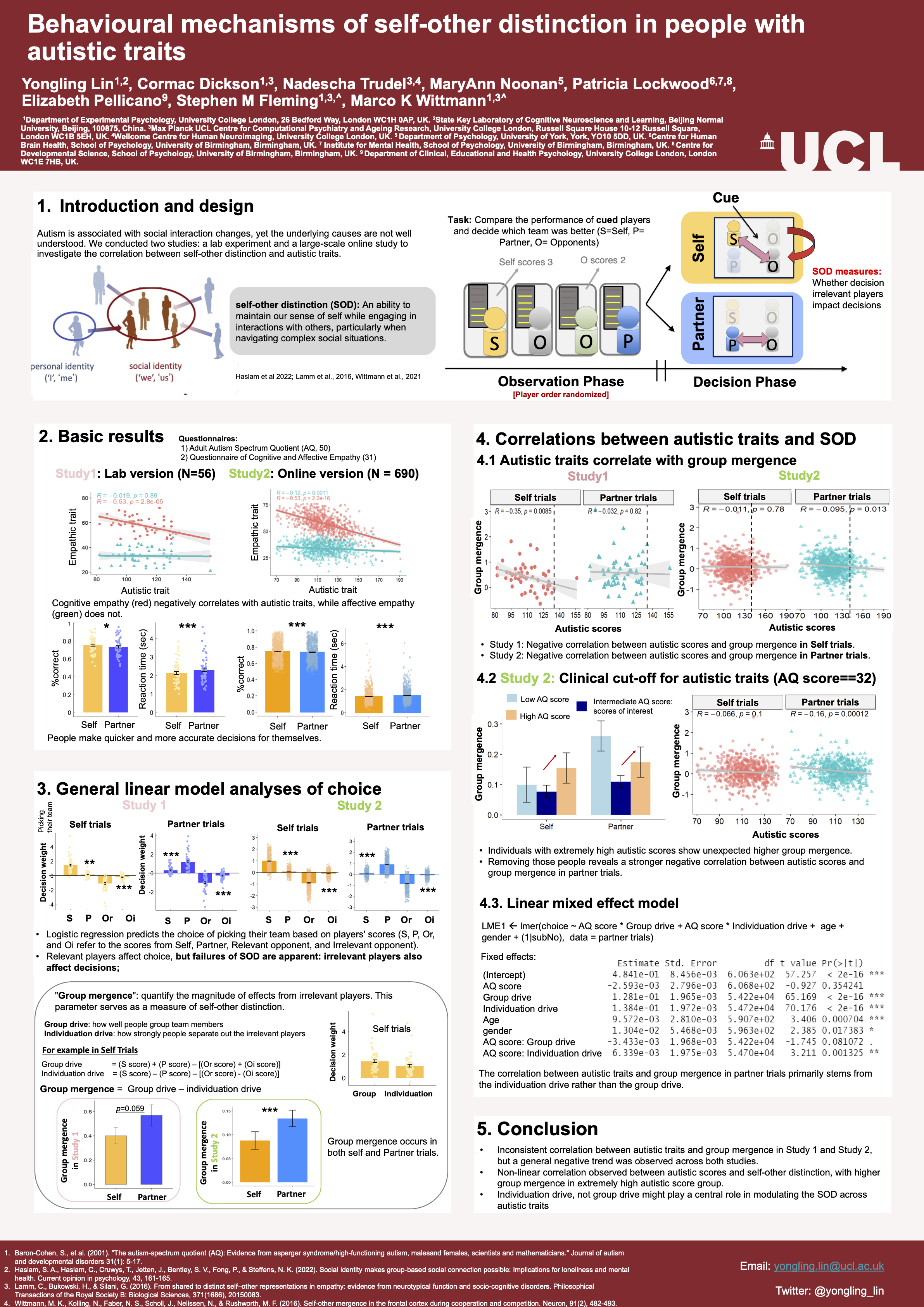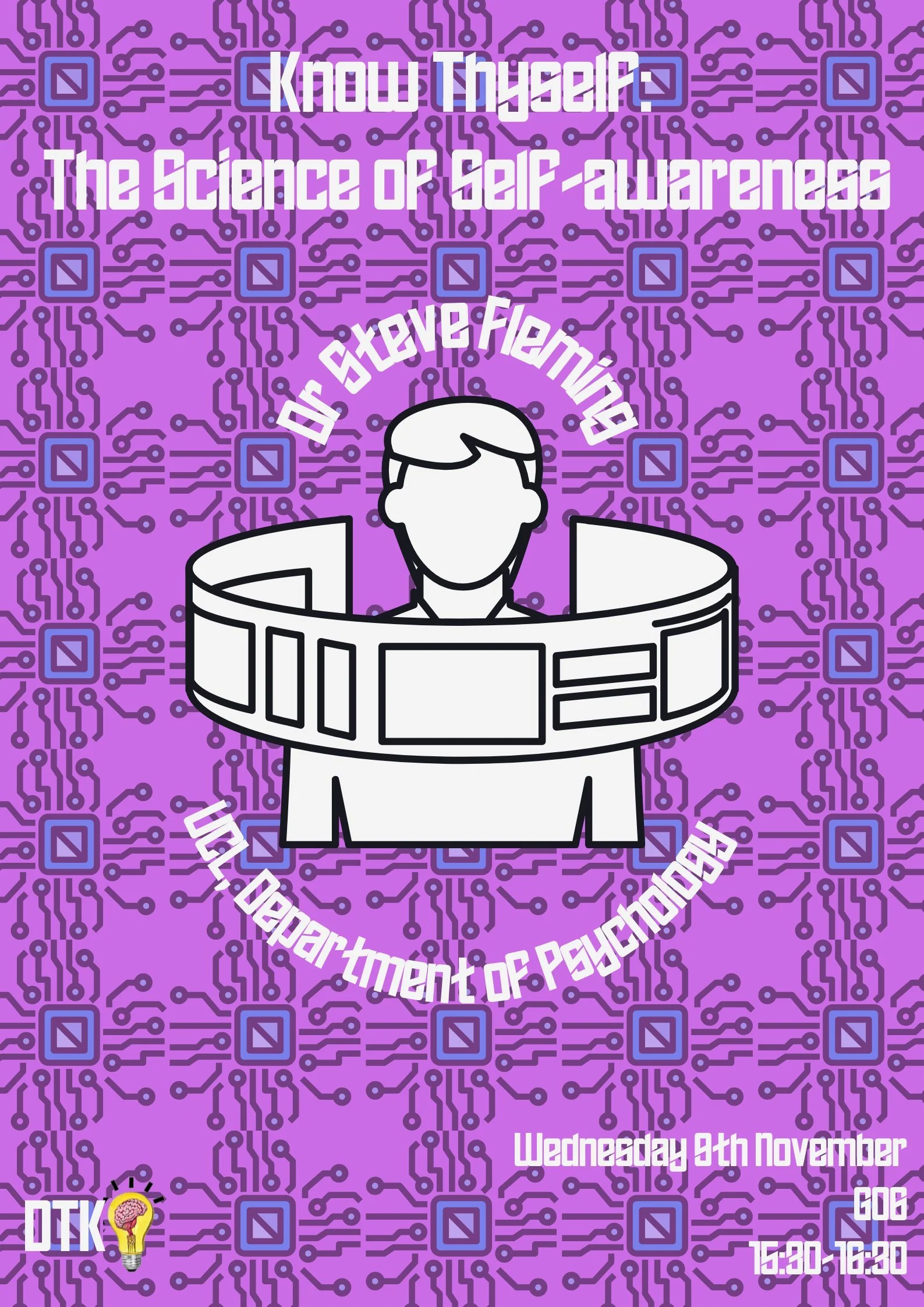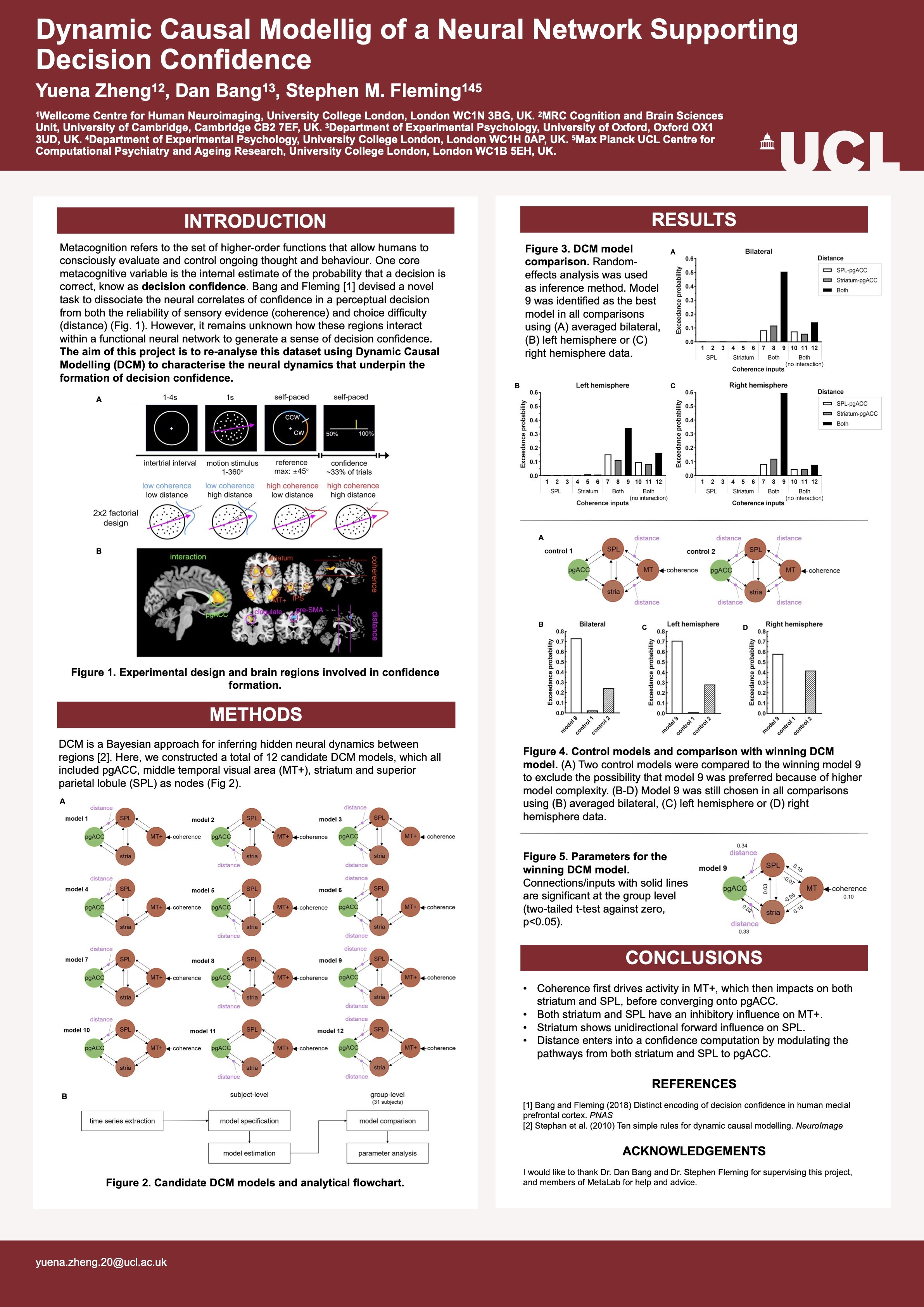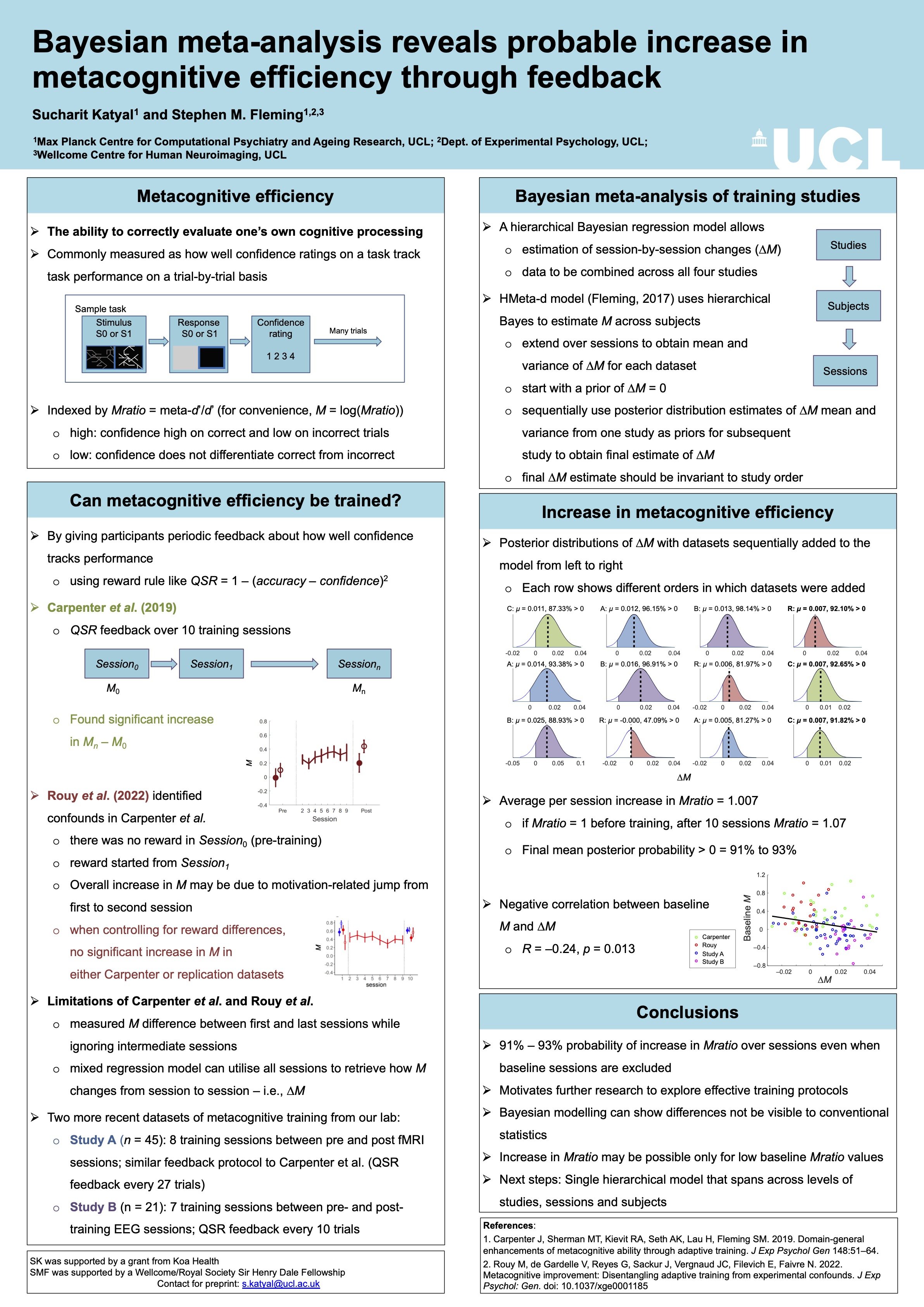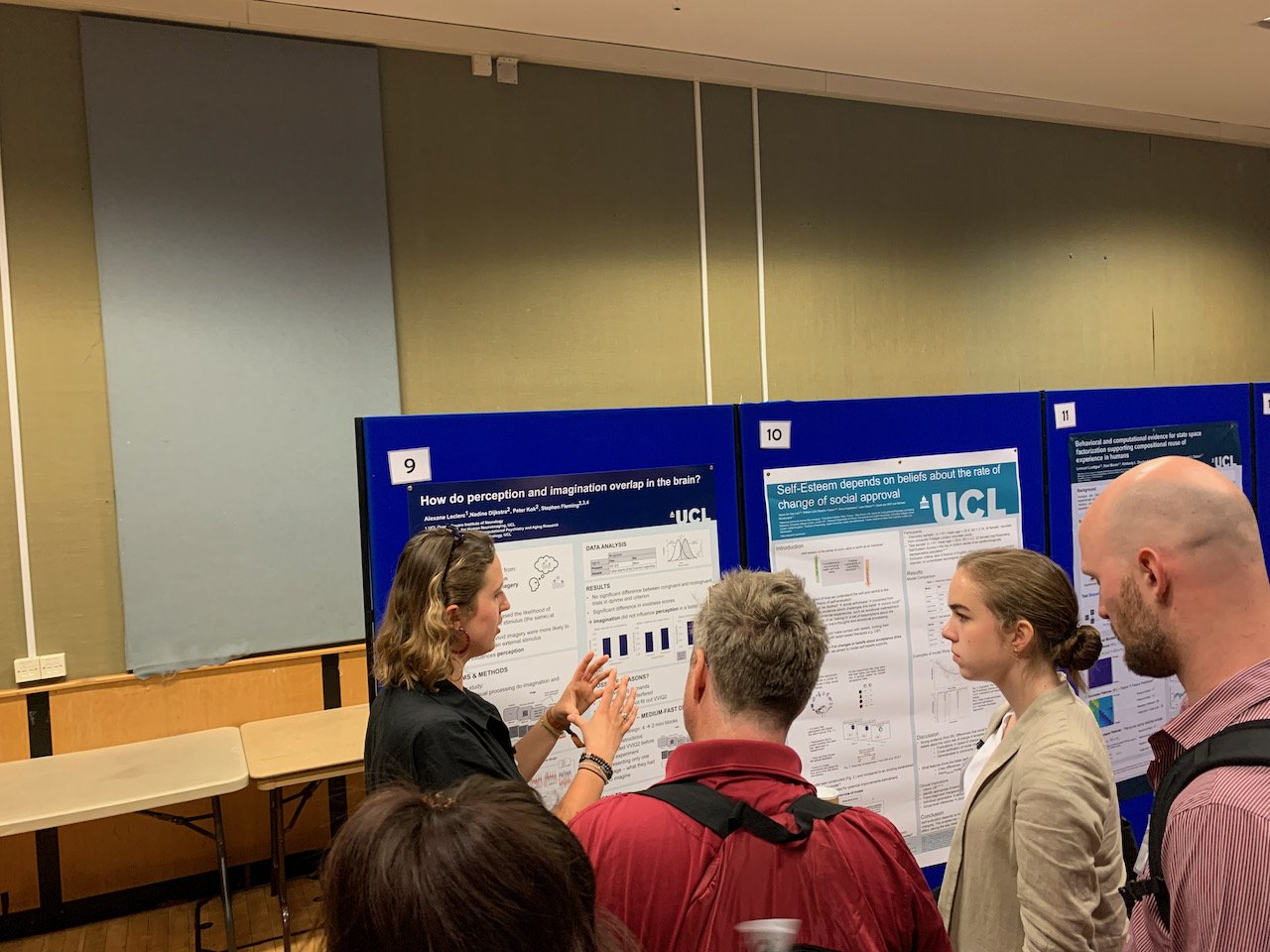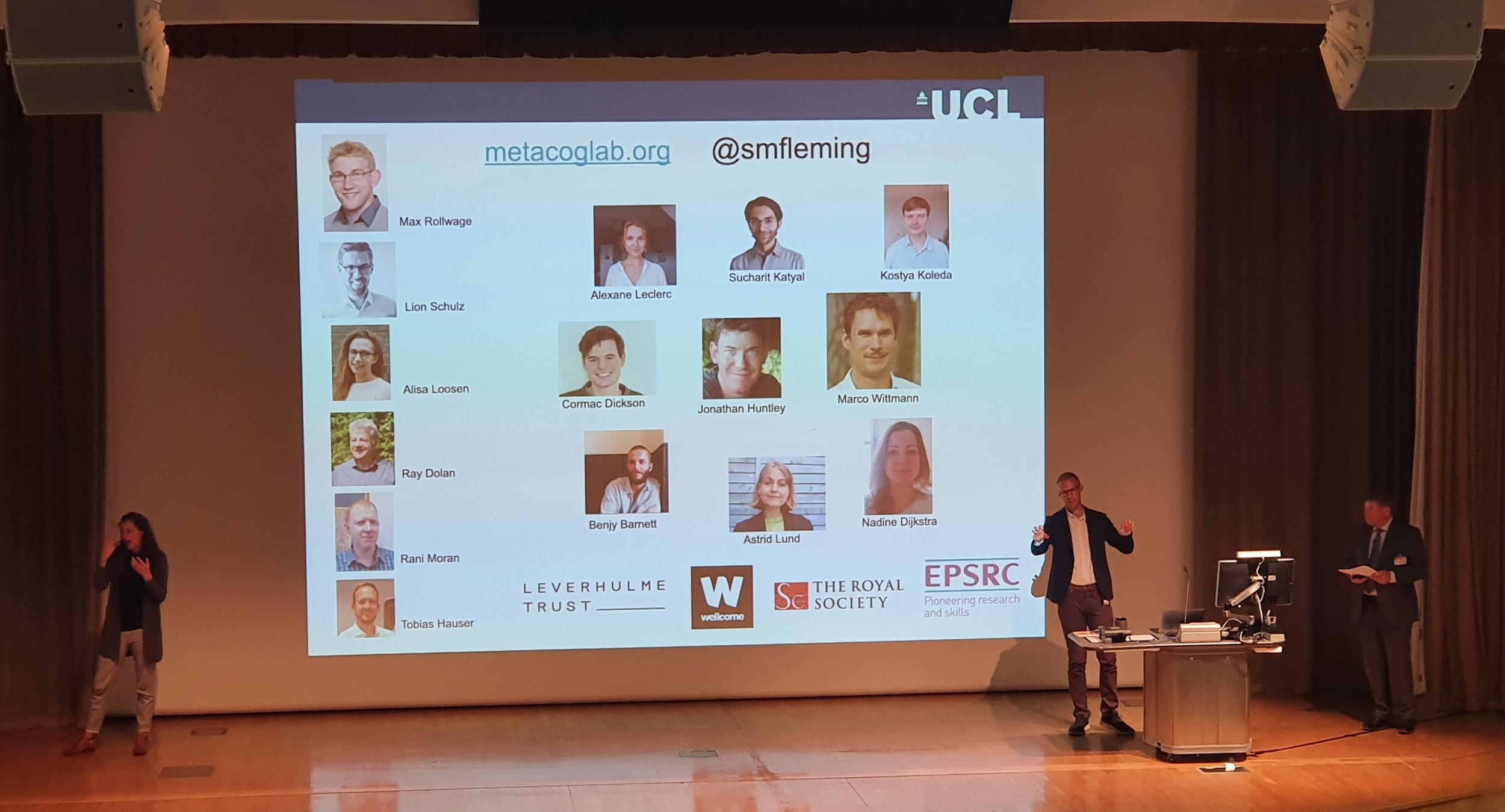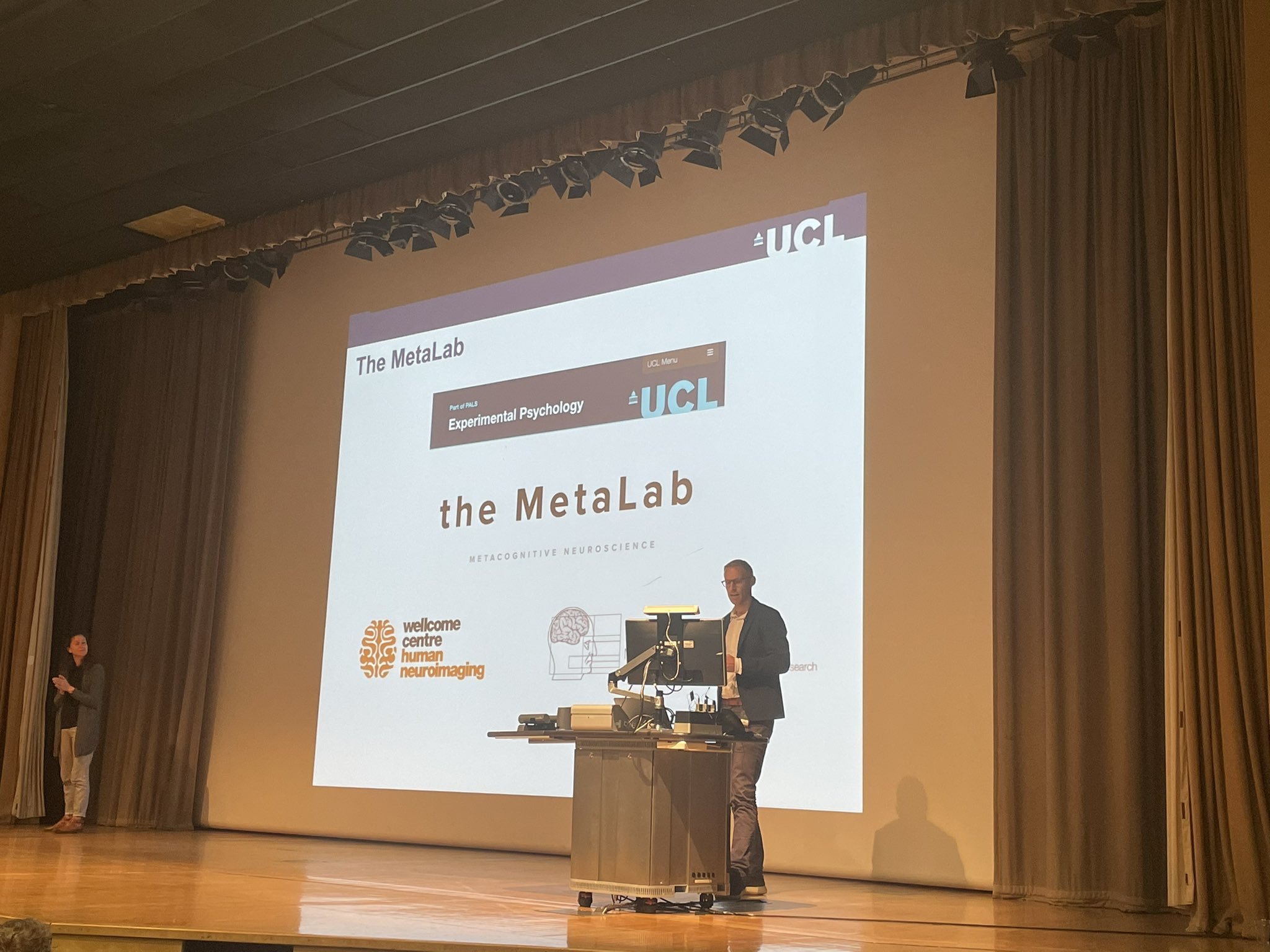A number of the MetaLab visited Amsterdam for ASSC25 for all things consciousness and metacognition. It was great to be back in person with colleagues after 2 years of the pandemic. Thanks to the organisers for putting together a brilliant week in a fantastic location!
Astrid, Sucharit, Benjy and Yuena all gave poster presentations (you can download their posters below).
Steve and Sucharit gave a meta-d’ tutorial (code here), and Steve participated in the Great Consciousness Debate representing higher-order theories.
To cap it all Steve, Megan Peters, Doby Rahnev and Lucie Charles organised the inaugural Perceptual Metacognition Satellite meeting with keynotes from Pascal Mamassian and Janneke Jehee.
What a week!






